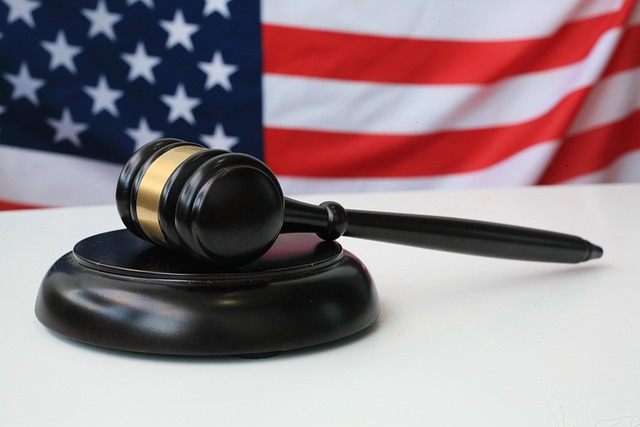RF Regulatory Agency (RFRA) investigations are crucial for upholding RF standards across diverse industries, ensuring safety, preventing interference, and verifying licensing. Initiated by violations like unauthorized transmissions or interference complaints, these probes involve data collection, analysis, interviews, and compliance assessments. Consequences range from fines to criminal prosecution. Case studies in securities exchange regulation highlight red flags, such as altered RF equipment, and offer insights into successful defenses focused on transparent record-keeping, documentation, and proactive compliance programs. RFRA investigations set industry standards, balance innovation with integrity, and foster responsible RF usage while holding wrongdoers accountable. Proactive preparation includes legal teams, internal audits, and staying informed about Case Studies in Securities Exchange Regulation.
“Unraveling RF Regulatory Agency Investigations: A Comprehensive Guide
Regulatory bodies play a pivotal role in ensuring fair practices, especially in the realm of radio frequency (RF) technologies. This article provides an insightful overview of RF regulatory agencies, their mandate, and the processes they employ to investigate potential breaches. From understanding their jurisdiction to recognizing red flags, we delve into the investigative journey, complete with case studies illustrating significant industry impacts. Additionally, we offer strategic guidance on preparing for such inquiries, emphasizing rights and best practices for compliance.”
- Understanding RF Regulatory Agency Investigations: A Overview of Their Role and Jurisdiction
- Common Triggers for RF Investigations: Recognizing Potential Red Flags
- The Investigative Process: From Initial Complaints to Findings and Penalties
- Case Studies: Notable RF Regulatory Cases and Their Impact on Industries
- Preparing for an Investigation: Rights, Best Practices, and Strategies for Compliance
Understanding RF Regulatory Agency Investigations: A Overview of Their Role and Jurisdiction

RF Regulatory Agency Investigations play a pivotal role in ensuring compliance with radio frequency (RF) standards across various industries. These agencies are tasked with overseeing and enforcing regulations that govern the use of RF technologies, from wireless communication devices to medical equipment. Their jurisdiction extends to all stages of product development, manufacturing, distribution, and operation, making them a crucial element in the broader securities exchange regulation framework.
By conducting thorough investigations, these regulatory bodies examine compliance with safety standards, interference prevention protocols, and licensing requirements. This process involves meticulous data collection, analysis, and evaluation using case studies as guiding examples. High-stakes cases often require a deep dive into complex RF interactions, leading to significant implications for businesses and consumers alike. Across the country, these investigations serve as a deterrent and a means to protect public interest by upholding the integrity of RF technologies in both consumer products and industrial applications.
Common Triggers for RF Investigations: Recognizing Potential Red Flags

RF Regulatory Agency investigations are often triggered by a variety of red flags that signal potential violations of radio frequency (RF) standards and regulations. These agencies, tasked with ensuring compliance across various industries, closely monitor activities related to wireless communications, electronic devices, and electromagnetic interference. Common triggers include reports of unauthorized transmissions, complaints about interference or reception issues, and anomalies detected through routine monitoring.
In the realm of securities exchange regulation, case studies illustrate how RF investigations can arise from seemingly unrelated incidents. For instance, a company’s unprecedented track record of regulatory compliance might be disrupted by an internal audit revealing alterations to RF equipment. This could prompt further inquiry into potential tampering or unauthorized modifications, ultimately leading to detailed investigations and, in severe cases, jury trials. Recognizing these red flags is crucial for businesses aiming to avoid indictment and maintain their integrity in the dynamic landscape of RF technology.
The Investigative Process: From Initial Complaints to Findings and Penalties

The investigative process initiated by RF Regulatory Agency (RFRA) begins with receipt of initial complaints or concerns from various sources, including consumers, industry peers, or self-disclosures from companies. These allegations may involve suspected violations of RFRA’s regulations related to electronic communications, spectrum usage, or other relevant sectors. Once a complaint is registered, the agency conducts a thorough preliminary review, gathering available information and evidence. If sufficient grounds are established, RFRA launches an in-depth investigation, employing a team of experts to analyze data, conduct interviews, and assess compliance against legal standards.
Throughout this process, companies under scrutiny have the right to defend themselves through white collar defense strategies, addressing allegations of white-collar and economic crimes. The agency’s findings are documented in detailed reports, outlining violations, their impact, and recommended penalties. Depending on the severity of offenses, penalties can range from fines to license revocations, suspension of operations, or even criminal prosecution. Case studies in securities exchange regulation often highlight achieving extraordinary results through effective investigative techniques, ensuring accountability while promoting ethical business practices.
Case Studies: Notable RF Regulatory Cases and Their Impact on Industries

In the realm of RF (Radio Frequency) technology and its regulatory landscape, case studies play a pivotal role in shaping industries and understanding the impact of regulatory actions. These notable cases serve as a testament to the far-reaching consequences of RF Regulatory Agency investigations. One such example is the 2018 investigation into a leading telecommunications company for alleged RF interference with competing networks. The outcome resulted in stringent compliance standards, significantly influencing the way future infrastructure projects are designed and implemented.
The impact of these high-stakes cases extends beyond individual companies. They set precedents that guide industry practices, ensuring innovation while maintaining regulatory integrity. Through meticulous investigations, the RF Regulatory Agency has achieved extraordinary results by not only holding wrongdoers accountable but also fostering a culture of responsible RF usage. This approach encourages compliance, enabling industries to thrive while navigating the complex web of regulations, specifically in cases involving general criminal defense strategies.
Preparing for an Investigation: Rights, Best Practices, and Strategies for Compliance

Preparing for an RF Regulatory Agency investigation is a critical phase that requires a strategic approach and a deep understanding of your rights. When facing such an inquiry, especially in highly regulated industries, it’s essential to be proactive. Begin by assembling a dedicated legal team with expertise in regulatory matters, as they can guide you through the process and ensure your rights are protected. One effective strategy is to conduct thorough internal audits to identify potential non-compliance issues. By doing so, you can proactively address any concerns before an external investigation begins.
In addition, staying informed about relevant case studies in securities exchange regulation can offer valuable insights. Many successful outcomes in regulatory investigations involve a combination of transparent record-keeping, comprehensive documentation, and a proactive compliance program. These practices have proven to be game-changers in winning challenging defense verdicts and achieving extraordinary results in jury trials. Remember, preparedness is key to navigating these complex legal processes successfully.
RF Regulatory Agency investigations are pivotal in maintaining the integrity of wireless communication systems. By understanding their role, recognizing common triggers, and preparing adequately, industries can navigate these processes effectively. The investigative process, detailed in this article, highlights the importance of compliance strategies and the potential consequences of non-compliance. Moreover, examining real-world case studies, such as those in the securities exchange regulation domain, serves as a stark reminder of the agency’s reach and power. Ultimately, being proactive and informed is key to mitigating risks and ensuring a smoother regulatory journey.






